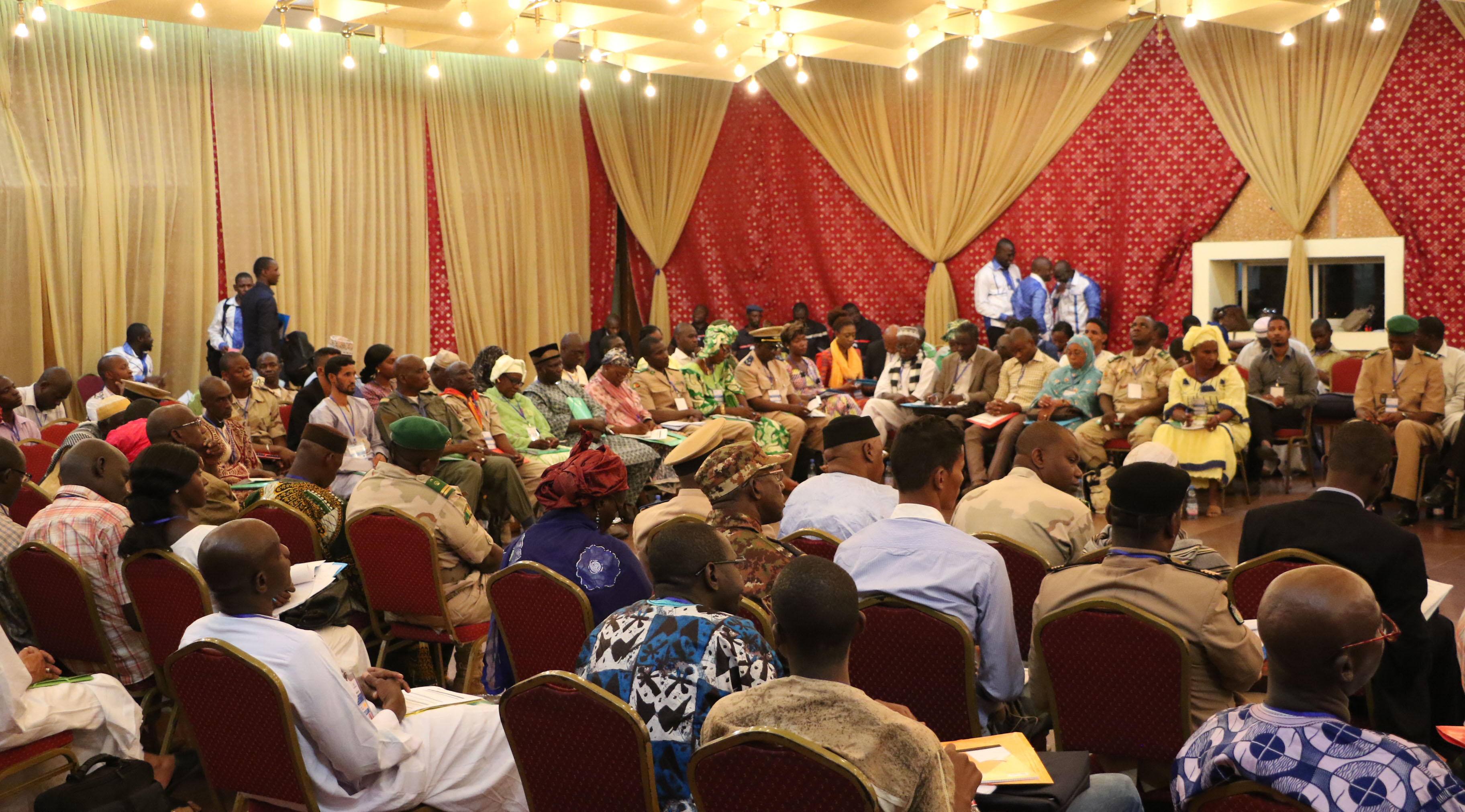“The road is hard, very hard, that leads to common happiness”. The Malian national anthem has never resonated more than it does today. Lying at the heart of the international agenda, Mali has begun its reconstruction. In order to guide international support, it was vital that the people of Mali identify and prioritize which obstacles to peace must be overcome before developing solutions for lasting peace in the country. This is why Interpeace and the Malian Institute of Research and Action for Peace (IMRAP) have set up “An Agenda for Peace in Mali”, a unique program that engages representatives from all social backgrounds and regions as well as neighboring refugee camps in wide-ranging consultations. The aim is to generate inclusive dialogue, in-depth reflection and national consensus about the obstacles to peace in order to find and implement appropriate solutions.
The goal of the second National Conference entitled “Chronic insecurity, the evolution of values: proposed solutions for lasting peace in Mali” was to present, build upon and validate solutions to these two challenges, which the Malian people identified as key priorities for peace during the first National Conference. A true reflection of Mali itself, this conference draws its legitimacy from its inclusivity and representativeness.
According to a number of participants, the people of Mali are strangers to each other. How can the state be expected to rebuild itself in a sustainable way if its society is fragmented? In addition, how can the effectiveness of the Malian Security and Defense Forces be ensured unless work is first undertaken to rebuild the trust between them and the people? Far from being a rubber-stamping exercise, this conference is an illustration of how Malian people from all social strata are taking ownership of their peacebuilding process, both by validating and prioritizing solutions and by committing collectively and individually to implement them. The result is a peacebuilding process led by the Malian people for the Malian people which reflects the current realities of the country.


